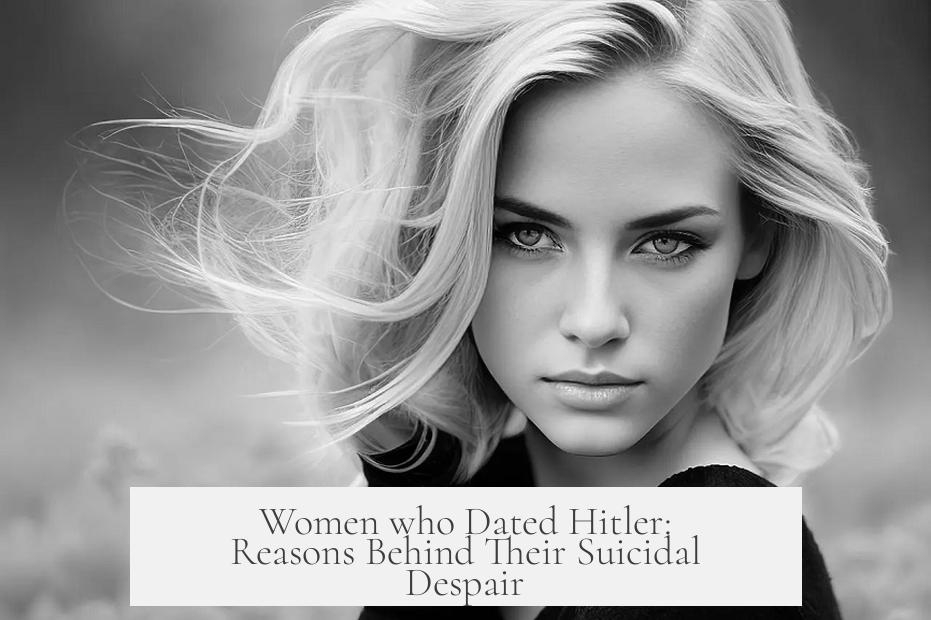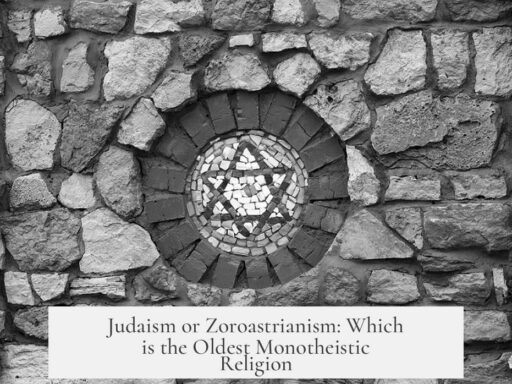The women who dated Adolf Hitler often faced severe emotional distress, with some reportedly wanting to commit suicide due to the coldness, control, and isolation inherent in their relationships with him. Many of these women were kept away from public life and political networks, dependent entirely on Hitler’s favor. His prioritization of politics over personal connections further deepened their unhappiness and sense of isolation.
Hitler’s romantic relationships remain difficult to fully understand due to limited historical evidence. He deliberately kept the women in his life in the background, often destroying personal correspondence, such as the letters Eva Braun had with him before his suicide. The German press largely avoided speculation on his romantic attachments, restricting historians’ ability to build a comprehensive picture. What we know relies heavily on postwar recollections and educated guesses rather than concrete documentation.
Hitler consistently portrayed himself as subordinating personal desires to the cause of National Socialism. Publicly, he maintained a solitary figure image, distancing himself from intimate relationships. His women, such as Eva Braun, were often pushed to the sidelines during social events. This emotional distance likely contributed to the women’s feelings of neglect within their relationships.
The suicide of Hitler’s niece, Geli Raubal, illustrates the dark intersection between personal tragedy and political image management. Geli’s death in 1931, amid rumors of incest and scandal, threatened Hitler’s emerging political career. Newspapers sympathetic to the political left highlighted the incident to portray Hitler negatively. In reaction, Hitler emphasized his devotion to the German nation, framing it as his one true love, effectively using the tragedy to deepen his image as a leader who sacrificed personal attachments for the country’s cause.
Hitler’s control over these women was strict, limiting their appearances at events and curbing their independent social lives. These women lacked strong political contacts of their own and relied on Hitler’s approval and assistance. This dependence exposed them to emotional vulnerabilities and may explain why some developed severe depression or suicidal thoughts. The imbalance of power in these relationships, combined with Hitler’s cold demeanor, created a harsh environment for emotional well-being.
Alternative perspectives suggest that Hitler’s romantic life might not have been unusual for a man of his political stature and era. Many figures in similar positions prioritized politics over personal life and formed relationships with younger partners. This view cautions against oversimplifying Hitler’s behavior as entirely monstrous or abnormal in every aspect. It warns that assuming he was perverted or psychologically distorted in all facets of life, including romance, may reflect a psychological need to categorize him as wholly evil instead of recognizing the complexity of his character.
Nevertheless, the lack of detailed sources prevents definitive answers. While some women’s suicides or emotional breakdowns may result from Hitler’s coldness and control, other explanations may exist. The historical context, social norms of the time, and individual psychological factors all potentially contributed to these tragic outcomes. It is important to consider these nuances without jumping to conclusions based on limited data.
In summary, the reasons why many women involved with Hitler wanted to commit suicide are likely a combination of these factors:
- Hitler’s emotional coldness and strict control created deep unhappiness and isolation.
- The women depended entirely on Hitler due to lack of political networks or other support systems.
- Public image concerns led Hitler to suppress personal connections, fostering emotional neglect.
- Tragic events, such as Geli Raubal’s suicide, highlight the personal and political strains on relationships.
- Limited historical documentation restricts full understanding, making some conclusions speculative.
- Alternative views suggest Hitler’s romantic life was not atypical for powerful men of his era.
Understanding these relationships requires balancing recognition of Hitler’s cold and controlling behavior with caution against overgeneralizing psychological portraits. The emotional experiences of the women involved were shaped by complex political, social, and personal factors present in the context of Nazi Germany’s rise.
Why Did Many of the Women Who Dated Hitler Want to Commit Suicide?

Many women close to Adolf Hitler contemplated or attempted suicide, and unraveling why is no simple task. The mystery coils tightly around limited historical sources and Hitler’s own secretive approach to his personal life. No one can outright declare a clear-cut reason, but by piecing together what we do know, some telling patterns emerge.
Hitler’s romantic relationships are like fragments of a smashed mirror—few and far between. He deliberately kept the women around him in the shadows. Eva Braun, the most famous partner, had all her private correspondence with Hitler destroyed before their deaths. The German press, loyal or intimidated, stayed silent on the subject. Western accounts rely heavily on postwar tales and scholarly guesswork, making it a graveyard of certainty.
What does this mean? The silence itself speaks volumes. Hitler’s love life wasn’t just private; it was pushed to the margins, almost as if his heart was already given to something far grander—National Socialism.
Publicly, Hitler positioned himself as a man who sacrificed personal needs for the “Volk,” the German nation. His few relationships reflected a clear subordination of love to politics. At social events where Eva Braun appeared, Hitler was famously distant, almost like a ghost sharing the room but not the warmth. This coldness extended beyond mere aloofness—it hinted at control.
Consider Geli Raubal, Hitler’s niece and rumored lover, who died by suicide in 1931. • Her death wasn’t just a family tragedy; it became a political weapon. Left-leaning newspapers exploited the incident to discredit Hitler, branding him immoral and weak at a critical moment in his career. Hitler swiftly redirected the narrative, publicizing his devotion solely to Germany. The Nazi newspaper Der Angriff hammered the message home: Hitler’s only “true mistress” was the nation itself.
Could this intense prioritization of ideology over personal bonds have weighed heavily on the women involved? Quite probably. Hitler’s women were all younger, dependent, and politically isolated. Devoid of power, they relied completely on Hitler’s favor. His cold demeanor and need for control may have bred feelings of helplessness and depression. Being pushed out of public view and forbidden from carving an identity beyond “Hitler’s companion” sounds stifling.
So why would some of these women contemplate suicide? The fragments point towards emotional turmoil born from isolation, dependency, and a controlling partner who offered little emotional warmth. These were not empowered women; their lives were wrapped tightly around a man obsessed with power and image.
Yet, let’s not get too simplistic here. Some historians argue Hitler’s romantic life was fairly typical for a man of his standing and time. Many politicians of his era prioritized career over love and favored younger partners. Could the tragic outcomes be more about individual vulnerabilities than intrinsic pathology in Hitler’s behavior?
Moreover, the temptation to paint Hitler as a domineering lover fitting his monstrous public persona might be misleading. The evidence is too thin to draw definitive psychological portraits. Confronting the full horror of his crimes might encourage us to see him as twisted in every way, but in reality, his love life might have been only just as troubled as his politics were deadly.
This perspective adds another layer to the story. The idea that Hitler’s romantic relationships were “normal” for someone in his position could feel almost more unsettling than imagining a completely depraved monster. It suggests that ordinary personal failings can coexist with extraordinary evil.
What can we take away from this gloomy patchwork of history? If a power-obsessed leader demands absolute subordination of personal life to ideology, the people closest to him face emotional peril. The absence of affection and autonomy can cultivate despair. When love is sacrificed at the altar of politics, the price is steep—and sometimes fatal.
In the end, the question of why many women involved with Hitler sought suicide remains layered with ambiguity, shaped as much by missing pieces as by what we do know. It’s a somber reminder that in the shadows of power, human suffering often hides unseen.
Summary Table of Key Points
| Factor | Description | Impact on Women |
|---|---|---|
| Limited Source Material | Hitler kept relationships secret; correspondence destroyed | Leaves history unclear; mystery fuels speculation on psychological impact |
| Hitler’s Political Priorities | Subordination of personal life to National Socialism | Women marginalized, felt isolated and emotionally neglected |
| Suicide of Geli Raubal | Used politically against Hitler; publicized devotion to Germany instead | Highlighting dangers of closeness to a controlling figure |
| Hitler’s Coldness & Control | Restricted women’s public appearances; younger and dependent partners | Potential cause for depression and hopelessness |
| Alternative Interpretations | Common patterns for politicians; caution against oversimplification | Suggests complexity beyond villainous archetypes |
So, what do you think? Is it the chilling shadow of political ambition that crushed love, or personal demons beyond our grasp? The history of Hitler’s women compels us to ask: can intimacy survive in the orbit of obsession and power? The question lingers, haunting as history itself.
Why did some women close to Hitler feel suicidal?
Hitler kept his romantic partners isolated and distant from public life. Women in his circle were often young and dependent on him, facing control and coldness. This created deep unhappiness and emotional stress.
How did Hitler’s political image affect his relationships?
Hitler framed his personal life as secondary to his political mission. His women were pushed into the background, with little public presence. This distance likely intensified feelings of loneliness and despair for them.
Did the suicide of Geli Raubal influence other women close to Hitler?
Geli’s suicide was linked to Hitler’s controlling nature and the political scandal it caused. Her death cast a shadow over his romantic life and showed the severe emotional toll on women around him.
Could Hitler’s romantic behavior be similar to other men in power of his time?
Some historians suggest Hitler’s treatment of women was not unusual for leaders of his era. His prioritization of politics over romance and preference for younger women aligned with common patterns.
Why is it difficult to fully understand Hitler’s relationships?
Much of Hitler’s private correspondence was destroyed, and his women were kept hidden. This limited the historical records, making it hard to draw clear conclusions about their emotional states.




